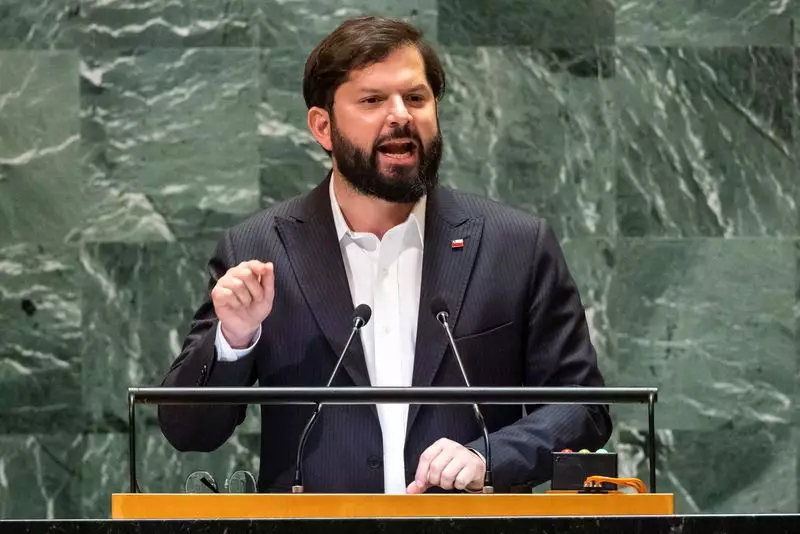In a recent address, Chilean President Gabriel Boric unveiled a proposed budget for 2025, marking a strategic shift towards enhancing national security and social welfare amidst a backdrop of economic uncertainty. With a modest annual increase of 2.7%, the budget reflects the government’s commitment to prioritizing citizen safety, healthcare, and pension enhancements while grappling with the complexities of migration issues and inflation.
A significant portion of Boric’s proposal emphasizes security measures, highlighting a $1.5 billion increase in the budget allocated to justice and security sectors compared to the previous year. This marks a concerted effort to bolster police presence and improve compensation for law enforcement personnel. “Guaranteeing your right to security is the first priority for my government,” Boric asserted, indicating a targeted approach against crime that has, in recent months, drawn increasing public concern.
The shift in tone regarding illegal migration is notable. President Boric has indicated that the administration will take a firmer stance on this issue, expressing the need to expel migrants who do not comply with the official biometric registration process. He has articulated a broader view that while Chile is a country open to migration, there are limits to the number of individuals it can absorb, especially in the face of an ongoing crisis in Venezuela, which has resulted in mass emigration.
Beyond security, the proposed budget allocates resources to improve key social programs. A substantial increase of 42% for Chile’s immunization programs illustrates a commitment to health sector advancements. Similarly, the budget aims to reinforce pensions, education, and cultural initiatives, underscoring a holistic approach to enhancing citizens’ quality of life.
Investments in digitalizing administrative processes, with plans to streamline 240 sector permits, aim to stimulate economic growth and attract increased investment. By modernizing bureaucratic functions, the government seeks to create a more favorable business environment, aligning fiscal policy with economic revitalization.
Chile faces a constellation of economic pressures, including an inflation forecast of 4.5% for the year, projected to decrease to 3.6% in the following year. The government’s growth target of 2.6% falls within a slightly refined outlook from the central bank, which has adjusted its growth forecasts due to prevailing economic conditions. In this context, the proposed budget is not just a financial plan; it reflects an urgent response to economic realities while aiming to galvanize public confidence.
The 2025 budget proposal submitted by President Boric encapsulates a multifaceted strategy aimed at addressing immediate security concerns and fostering social welfare. As the government prepares to present the bill before Congress, the next steps will be crucial in determining whether these ambitious plans will come to fruition. Boric’s administration is pinned between demonstrating fiscal responsibility, addressing public demands for safety, and navigating the complex landscape of immigration and economic recovery. The coming months will reveal how effectively the government can balance these priorities, a task that will require both legislative support and active public engagement.

